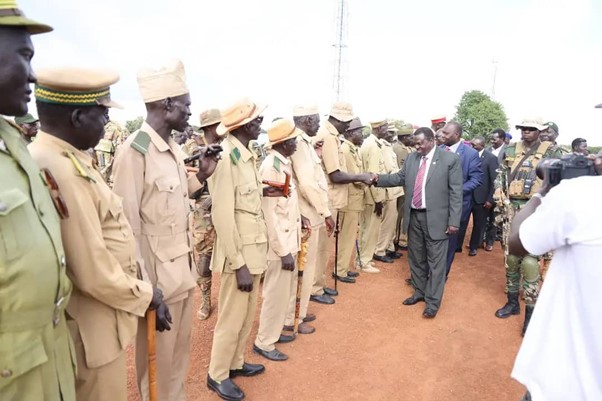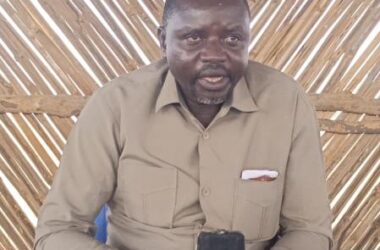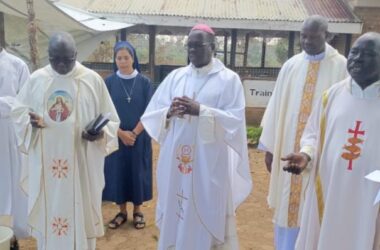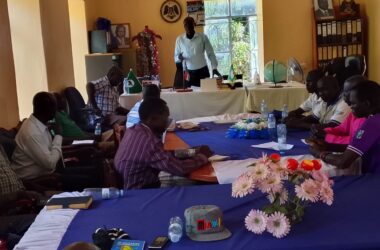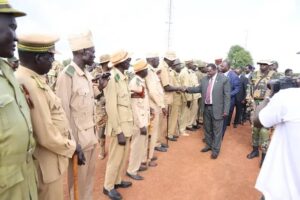
By Kei Emmanuel Duku
A three-day conference aimed at fostering peace between herders from Terekeka County and farmers from Juba County concluded with a series of firm resolutions.
Governor of Central Equatoria State, Lt. Gen. Rabi Mujung Emmanuel, presided over the closure of the conference, which was held in Kuda, Dolo Payam, and emphasized a new path forward for the communities.
During the conference, delegates identified conflict over grazing Land and destruction of farmlands by livestock between the two communities as a major source of insecurity.
In the conference delegates agreed to establish several key agreements to promote peace and unity. One of the resolutions requires herders to seek prior permission from host communities before grazing and to use designated grazing zones with water sources.
According to a statement on the Governor’s official social media platform, special courts, supported by community police, will be created to enforce these rules and handle disputes. Additionally, the movement of armed youth in villages will be restricted to reduce violence and promote security.
In his address to the delegates, Governor Mujung praised both groups for engaging in dialogue and stressed the State’s commitment to peace, security, and unity. “Time should not be wasted after spending three days in this conference,” he urged, “Let these resolutions be a roadmap to peace, reconciliation, and harmony among herders and farmers.”
Jacob Aligo Lo-Lado, State Minister of Peace Building, called for similar grassroots initiatives throughout the State.
Dr. Emmanuel Loku Ladu, Commissioner of Terekeka County, directed all herders to return to their home county and warned that violators would face severe consequences. He appealed for financial and logistical support for security organs to enforce the new rules and recover stolen cattle.
Meanwhile, Hon. Emmanuel Tete Ezbon, Commissioner of Juba County, pledged to work with Terekeka County to ensure the full implementation of the resolutions. “Let this be the last conference on farmer and herder conflict,” he stated, looking toward a new beginning for the two communities that have long co-existed.
Other community leaders also voiced their support. Hon. Salah Rajab Bunduki, representing the Yangawra-Pojulu-Tijor community, called the resolutions a “new page” for the communities and urged “concerted efforts to implement” them.
Wani Buyu, a representative of the Mundari community, apologized on behalf of the citizens and appealed to the government and development partners for assistance, such as digging water catchments in Terekeka County to prevent future cattle migration. He also stressed the need for strict implementation to uphold coexistence.
The conflict between herders and farmers in Central Equatoria State is a long-standing issue, primarily driven by competition over land and resources. Herders, often from the Mundari community in Terekeka County, migrate with their cattle in search of grazing land and water, frequently clashing with farmers in Juba County over crop destruction.
Previous conferences and agreements have often failed to produce lasting peace, leading to ongoing violence, livestock theft, and displacement. The resolutions from this conference are intended to provide a more sustainable framework for peaceful coexistence by establishing clear rules, enforcement mechanisms, and infrastructural support to address the root causes of the conflict.

